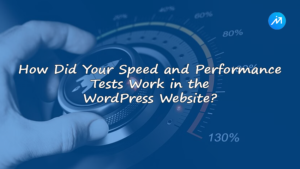Choosing the best hosting for WordPress website is crucial to its success. With numerous options available on the market, it can be overwhelming to decide which one best suits your needs. In this guide, we’ll explore the factors to consider when choosing WordPress hosting and recommend some top providers.
What is hosting?
Hosting, in the context of technology, refers to the service of providing storage space and access for websites and applications on the internet. When you create a website or web application, you need a place to store all of its files (such as HTML, CSS, JavaScript, images, videos, etc.) so that others can access it over the internet.
A hosting provider typically offers server space on their computers, known as servers, where you can upload your website files. These servers are connected to the internet and configured to serve your website or application to users who request it through their web browsers.
Hosting services can vary in terms of features, performance, security, and pricing. Some common types of hosting include shared hosting, virtual private servers (VPS), dedicated hosting, and cloud hosting, each offering different levels of resources and control over the server environment.
Types of WordPress Hosting –
- Shared Hosting: Ideal for beginners and small websites, shared hosting involves sharing server resources with other websites.
- VPS Hosting: Provides a virtual private server with dedicated resources, offering more control and scalability.
- Dedicated Hosting: Offers a dedicated server for your website, providing maximum performance and customization options.
- Managed WordPress Hosting: Tailored specifically for WordPress websites managed hosting handles technical aspects like updates, backups, and security.
Why do we need to hosting?
- Online Presence: Hosting allows individuals and businesses to establish an online presence by making their websites accessible on the Internet. Without hosting, websites would only exist locally on the creator’s computer and wouldn’t be available for others to view.
- Accessibility: Hosting ensures that websites are accessible to anyone with an internet connection, regardless of their location or device. This accessibility is crucial for reaching a wider audience and engaging with users from around the world.
- Reliability: Hosting services typically offer reliable uptime guarantees, ensuring that websites remain accessible to visitors at all times. This reliability is essential for businesses that depend on their websites to generate leads, sales, or provide information to customers.
- Storage: Hosting provides storage space for website files, including HTML, CSS, images, and other multimedia content. This allows websites to store and deliver the necessary files to visitors when they access the site.
- Scalability: Hosting services often offer scalable solutions that allow websites to accommodate increased traffic and growth over time. Whether it’s shared hosting for smaller websites or dedicated servers for larger ones, hosting providers offer options that can scale to meet the needs of any website.
- Security: Hosting providers implement security measures to protect websites from cyber threats such as malware, hacking attempts, and DDoS attacks. These measures include firewalls, encryption, regular backups, and security updates to ensure the safety and integrity of website data.
- Technical Support: Hosting services typically provide technical support to assist website owners with any issues or challenges they may encounter. Whether it’s troubleshooting technical problems, configuring server settings, or optimizing website performance, hosting support teams are there to help.
- Domain Management: Many hosting providers also offer domain registration services, allowing website owners to easily manage their domain names and associated DNS settings in one place.
Overall, hosting is essential for making websites accessible, reliable, and secure on the internet, enabling individuals and businesses to establish and maintain their online presence effectively.
What is the best hosting for WordPress website?
- Bluehost: One of WordPress’s recommended hosting providers, Bluehost offers affordable shared hosting plans with excellent performance and customer support.
- SiteGround: Known for its exceptional performance and top-notch support, SiteGround offers managed WordPress hosting with features like automatic updates and caching.
- WP Engine: Specializing in managed WordPress hosting, WP Engine provides advanced security features, automatic backups, and developer-friendly tools.
- Kinsta: Built on the Google Cloud Platform, Kinsta offers high-performance managed WordPress hosting with a focus on speed, security, and scalability.
- DreamHost: With a strong reputation for reliability and affordability, DreamHost offers shared, VPS, and managed WordPress hosting options suitable for various needs.
- DigitalOcean: DigitalOcean is a cloud infrastructure provider known for its simplicity and scalability. It offers cloud computing services that allow developers to deploy, manage, and scale applications effortlessly. With a user-friendly interface and transparent pricing, DigitalOcean caters to both beginners and experienced developers. Its key features include droplets (virtual private servers), managed databases, Kubernetes clusters, and object storage. DigitalOcean’s focus on simplicity, affordability, and developer-friendly tools has made it a popular choice for startups, small businesses, and individual developers looking to build and scale their applications in the cloud.
Factors to Consider When Comparing Providers –

| Pricing | Compare the pricing plans of different providers and consider the value offered in terms of features and performance. |
| Performance Metrics | Look for objective performance metrics such as server response time and uptime guarantee. |
| User Reviews | Read reviews and testimonials from other users to gauge the quality of service and customer satisfaction. |
| Additional Features | Consider any extra features offered by the hosting provider, such as staging environments, CDN integration, and developer tools. |
In the fast-paced digital landscape of 2024, having a strong online presence is paramount for the success of any small business. To help you navigate the crowded market of web design services, we’ve compiled a list of the best small business web design companies in 2024, combining innovation, expertise, and customer satisfaction. If you want to learn more about this Just – Click here
Which is the best WordPress hosting for SEO?
SiteGround is a top choice for WordPress hosting when it comes to SEO. They offer excellent performance, reliability, and a range of features optimized for search engine optimization. Their servers are fast, they provide free SSL certificates, and their customer support is known for being knowledgeable and responsive.
Which is the best WordPress hosting for developers?
Kinsta
They offer a developer-friendly environment with features like staging areas, SSH access, Git integration, and one-click staging environments. Their infrastructure is optimized for speed and security, with advanced caching, automatic backups, and DDoS detection. Additionally, they provide excellent support and a user-friendly dashboard for managing your WordPress sites efficiently.
Which is the best WordPress hosting for security?
Kinsta
Kinsta provides top-notch security measures, including:
- Firewall Protection: Kinsta employs a robust firewall to monitor and block malicious traffic, thwarting potential threats before they can reach your WordPress site.
- DDoS Detection and Mitigation: Kinsta’s infrastructure is designed to detect and mitigate DDoS attacks swiftly, ensuring your site remains accessible and secure even during high-stress situations.
- Hardware Firewall: Kinsta implements a hardware firewall that adds an extra layer of security, safeguarding your site’s data and resources against various cyber threats.
- Automatic Backups: Kinsta automatically backs up your WordPress site daily, allowing you to restore previous versions quickly in case of any security incidents or data loss.
- Software Security: Kinsta keeps its platform and software up to date with the latest security patches and updates, reducing the risk of vulnerabilities that could be exploited by attackers.
Overall, Kinsta offers a comprehensive security solution tailored specifically for WordPress sites, making it an excellent choice for users prioritizing security.
What is the importance of hosting?
Hosting is very important for a website. Online access to a website is unthinkable without hosting. Below are some of the importance of hosting –
- Website Accessibility: Without hosting, your website would not be accessible to anyone on the internet. Hosting provides the infrastructure and resources necessary to store and serve your website’s files to visitors.
- Website Performance: Quality hosting ensures that your website loads quickly, which is crucial for user experience and search engine rankings.
- Reliability: A reliable hosting provider ensures that your website is accessible to visitors consistently without unexpected downtime.
- Security: Hosting plays a critical role in protecting your website from security threats such as malware attacks and data breaches.
- Scalability: Good hosting allows you to easily scale your website as your business grows, accommodating increased traffic and resource demands.
- Technical Support: Quality hosting providers offer technical support to assist you in troubleshooting any issues that may arise with your website.
- SEO Impact: Hosting location and performance can impact your website’s search engine rankings, making it essential to choose a hosting provider with good infrastructure.
- Backup and Recovery: Hosting services often include backup and recovery options, safeguarding your website’s data against loss or corruption.
These factors collectively contribute to the overall success and effectiveness of your website.
How can we choose hosting for our WordPress website?

Choosing the right hosting for your WordPress website is crucial for its performance, security, and scalability. Here are some factors to consider when selecting a hosting provider:
- Performance: Look for a hosting provider that offers good server performance and uptime. This ensures that your website loads quickly and remains accessible to your visitors. Consider factors like server response time, available resources (CPU, RAM), and SSD storage.
- WordPress Compatibility: Opt for a hosting provider that specializes in WordPress hosting or offers optimized WordPress hosting plans. These providers often have servers configured specifically for WordPress, which can improve performance and security.
- Security: Security is paramount for any website. Choose a hosting provider that offers robust security features such as firewalls, malware scanning, SSL certificates, and regular backups. Some hosting providers also offer built-in security features specifically tailored for WordPress.
- Scalability: Your website may grow over time, so choose a hosting provider that can accommodate your future needs. Look for options to easily upgrade your hosting plan or add resources as your traffic increases.
- Support: Reliable customer support is essential, especially if you’re not experienced with managing websites. Make sure the hosting provider offers responsive support through various channels like live chat, email, and phone. Also, check if they have a knowledge base or documentation to help you troubleshoot common issues.
- Price: Compare pricing plans from different hosting providers, but don’t solely base your decision on cost. Consider the value you’re getting for the price, including performance, features, and support.
- Reviews and Reputation: Research and read reviews from other WordPress users to gauge the reputation and reliability of hosting providers. Look for feedback on performance, support, uptime, and security.
- Control Panel: Consider the ease of use of the hosting provider’s control panel. Most hosting providers offer cPanel or a similar control panel, which makes it easy to manage your website, domains, databases, and email accounts.
- Additional Features: Some hosting providers offer additional features like staging environments, automatic updates, CDN integration, and caching plugins. These features can enhance the performance and functionality of your WordPress website.
By considering these factors and researching different hosting providers, you can find the best fit for your WordPress website.
In the vast landscape of digital marketing, Search Engine Optimization (SEO) stands as a cornerstone for ensuring online visibility. At the heart of effective SEO keyword research – a crucial process that can make or break your online presence. For beginners, understanding the nuances of SEO keyword research may seem like a daunting task, but fear not! We are ready to assist you so just – click here
How Did Your Speed and Performance Tests Work in the WordPress Website?

Speed and performance tests in WordPress websites typically involve using specialized tools or plugins to analyze various aspects of the site’s performance. Here’s a basic overview of how these tests work:
- Selecting a Testing Tool: There are several tools available for testing the speed and performance of a WordPress website. Some popular options include Google PageSpeed Insights, GTmetrix, Pingdom, and tools provided by web hosting companies like SiteGround or Bluehost.
- Running the Test: Once you’ve chosen a testing tool, you input your website’s URL into the tool’s interface and initiate the test. The tool then sends requests to your website’s server, simulating how a real visitor would interact with the site.
- Analyzing the Results: After the test is complete, the tool provides you with a detailed report that highlights various metrics related to your website’s performance. These metrics may include page load time, page size, number of requests, and scores based on performance best practices.
- Identifying Performance Issues: The report generated by the testing tool can help you identify specific areas where your website may be experiencing performance issues. Common issues might include large image sizes, excessive JavaScript/CSS files, slow server response times, or inefficient code.
- Optimizing Performance: Once you’ve identified the performance issues, you can take steps to optimize your website accordingly. This might involve tasks such as optimizing images, minifying CSS/JavaScript files, enabling caching, using a content delivery network (CDN), or upgrading your web hosting plan.
- Re-testing: After making optimizations to your website, it’s important to re-run the speed and performance tests to see if your changes have had a positive impact. This iterative process may involve making further adjustments until you’re satisfied with your website’s performance.
Overall, speed and performance testing are crucial for ensuring that your WordPress website loads quickly and provides a smooth user experience for visitors. By regularly testing and optimizing your site, you can help improve its performance and potentially increase engagement and conversions.
Conclusion
Choosing the best hosting for your WordPress website requires careful consideration of your needs and priorities. By understanding the different types of hosting, key features to look for, and top providers in the market, you can make an informed decision that ensures the optimal performance, security, and scalability of your website. Take your time to research and compare options before selecting the hosting provider that best aligns with your requirements and budget.
In summary, when it comes to hosting your WordPress website, prioritize factors like performance, security, support, and scalability to provide your visitors with a seamless browsing experience and set a strong foundation for your online presence.
